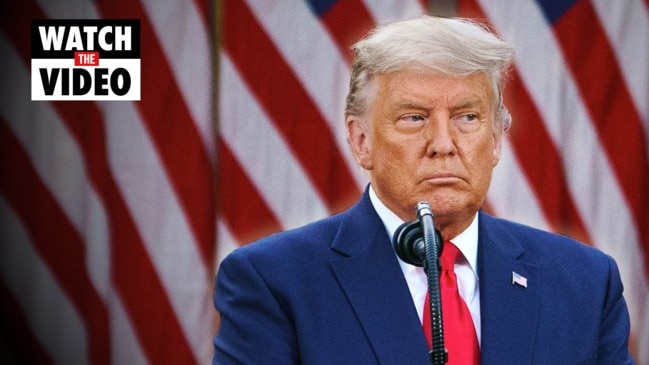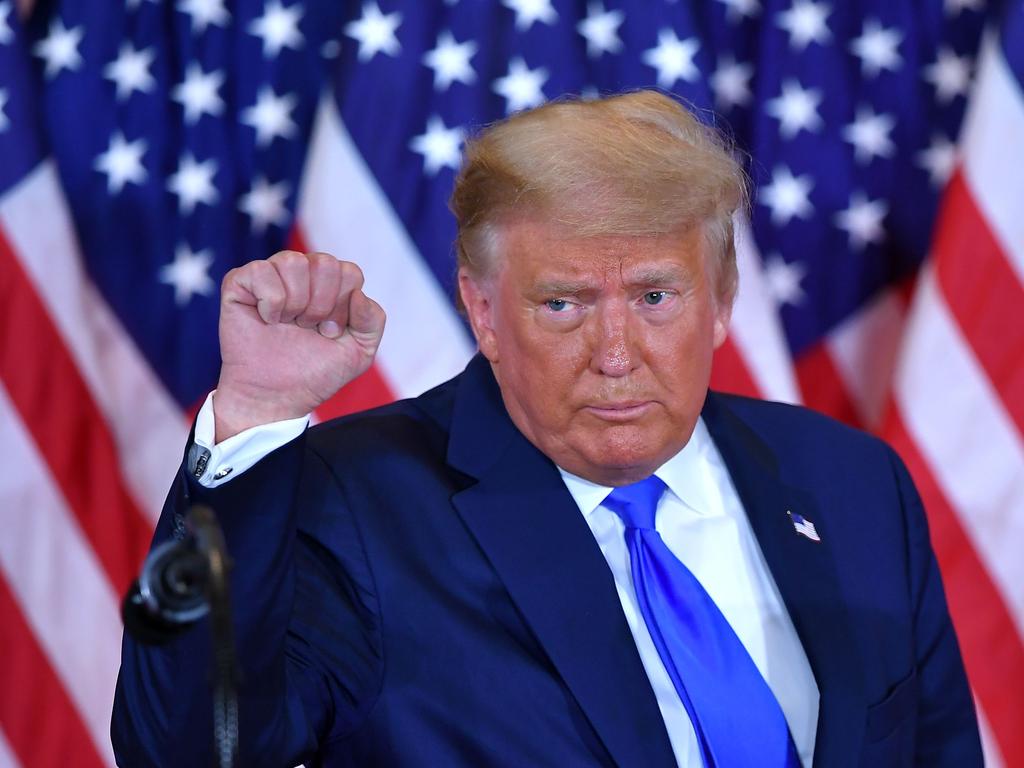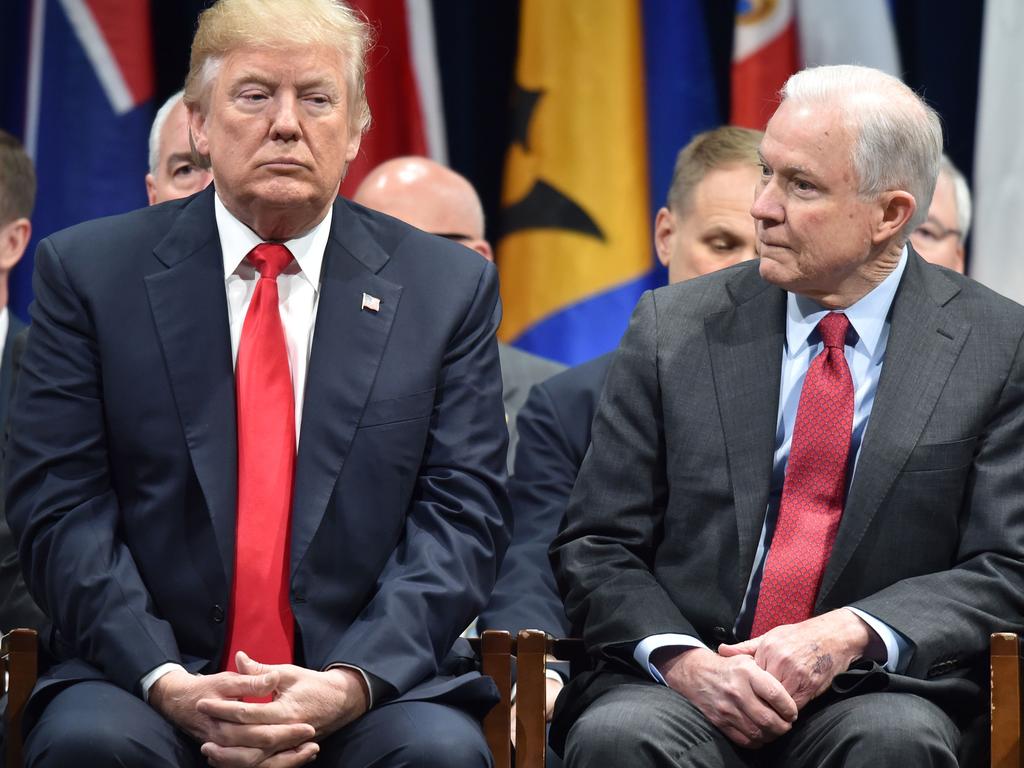US election: Donald Trump could pardon himself
Donald Trump’s last defiant act could be to grant himself a pardon — a move he boasted he has “the absolute right” to make in 2018.

Donald Trump’s last days in office could be used to grant himself a pardon — an act no other sitting President has ever attempted but one Mr Trump himself admits he has “the absolute right” to carry out.
The President faces accusations of tax fraud, obstruction of justice and falsification of business records but is granted sweeping powers within Article II of the US Constitution to show himself mercy with little to no explanation or justification.
And he knows it. He said this in 2017 when referring to Special Counsel Robert Mueller’s investigation into Russian interference in the 2016 election.
“While all agree the U. S. President has the complete power to pardon, why think of that when only crime so far is LEAKS against us.”
While all agree the U. S. President has the complete power to pardon, why think of that when only crime so far is LEAKS against us.FAKE NEWS
— Donald J. Trump (@realDonaldTrump) July 22, 2017
A year later, he hinted again at the broad range of pardon powers available to him should he need them.
“As has been stated by numerous legal scholars, I have the absolute right to PARDON myself, but why would I do that when I have done nothing wrong?,” he wrote.
“In the meantime, the never ending Witch Hunt, led by 13 very Angry and Conflicted Democrats (& others) continues into the mid-terms!”
As has been stated by numerous legal scholars, I have the absolute right to PARDON myself, but why would I do that when I have done nothing wrong? In the meantime, the never ending Witch Hunt, led by 13 very Angry and Conflicted Democrats (& others) continues into the mid-terms!
— Donald J. Trump (@realDonaldTrump) June 4, 2018
RELATED: Follow our latest US election updates
RELATED: Biden’s plea to Americans to wear masks
So, what exactly do the powers provide? They give a sitting President the virtually unlimited authority to forgive any federal crime.
The powers were designed to offer the occupier of the White House the ability to do good — to overturn convictions where they were deemed to have been unfair or unreasonable.
They are, crucially, unchallengeable. The President does not need to provide a reason for issuing a pardon and the decision is final.
A pardon wipes out a criminal conviction, but the President can also grant clemency which leaves a conviction intact but gets rid of the punishment — essentially setting prisoners free.
The language in the US Constitution is vague and does not answer the question on self-pardon. Experts say it is completely possible, but may require an extraordinary step and a third party willing to sacrifice themselves and their legacy in the process.
As reported by Reuters, a pardon “only applies to federal crimes (and) would not, for example, protect Trump associates from the criminal investigation being conducted by Manhattan District Attorney Cyrus Vance, a state prosecutor.”

Vance’s probe began more than two years ago after Mr Trump’s lawyer Michael Cohen allegedly paid hush money prior to the 2016 election to two women including an adult film star and a former Playboy model.
Reuters reports that the two women claimed they had sexual encounters with Mr Trump. The President denies they ever occurred and claims the action is politically motivated.
Washington-based political news website The Hill reports that accusations within the Mueller investigation could include federal charges which Mr Trump is immune to while he is sitting President. But they could return once a new administration takes over.
The Hill reports Mr Trump could grant clemency to others allegedly involved in wrongdoing as part of his time in the White House, including former campaign manager Paul Manafort, former national security adviser Michael Flynn and longtime friend and adviser Roger Stone.
Doing so would not be particularly unusual. Every one of the past four Presidents with the exception of Barack Obama “abused clemency for personal reasons during their final months in office,” The Hill reports.

Experts are split of whether Mr Trump would try to pardon himself.
Brian Kalt, a constitutional law professor at Michigan State University, said: “When people ask me if a president can pardon himself, my answer is always, ‘Well, he can try,’ … The Constitution does not provide a clear answer on this.”
Corey Brettschnieder, a professor of political science at Brown University, says there is one more option available to Mr Trump if he wants to avoid a self-pardon.
He could activate a clause within the 25th Amendment to the US Constitution by temporarily stepping down from the presidency.
That would leave Vice President Mike Pence with executive power to pardon Mr Trump. And Mr Trump could then return to office.
But it’s a big ask. Perhaps too big.
“I don’t think Pence would want that to define his legacy,” Prof Brettschnieder told Reuters.




